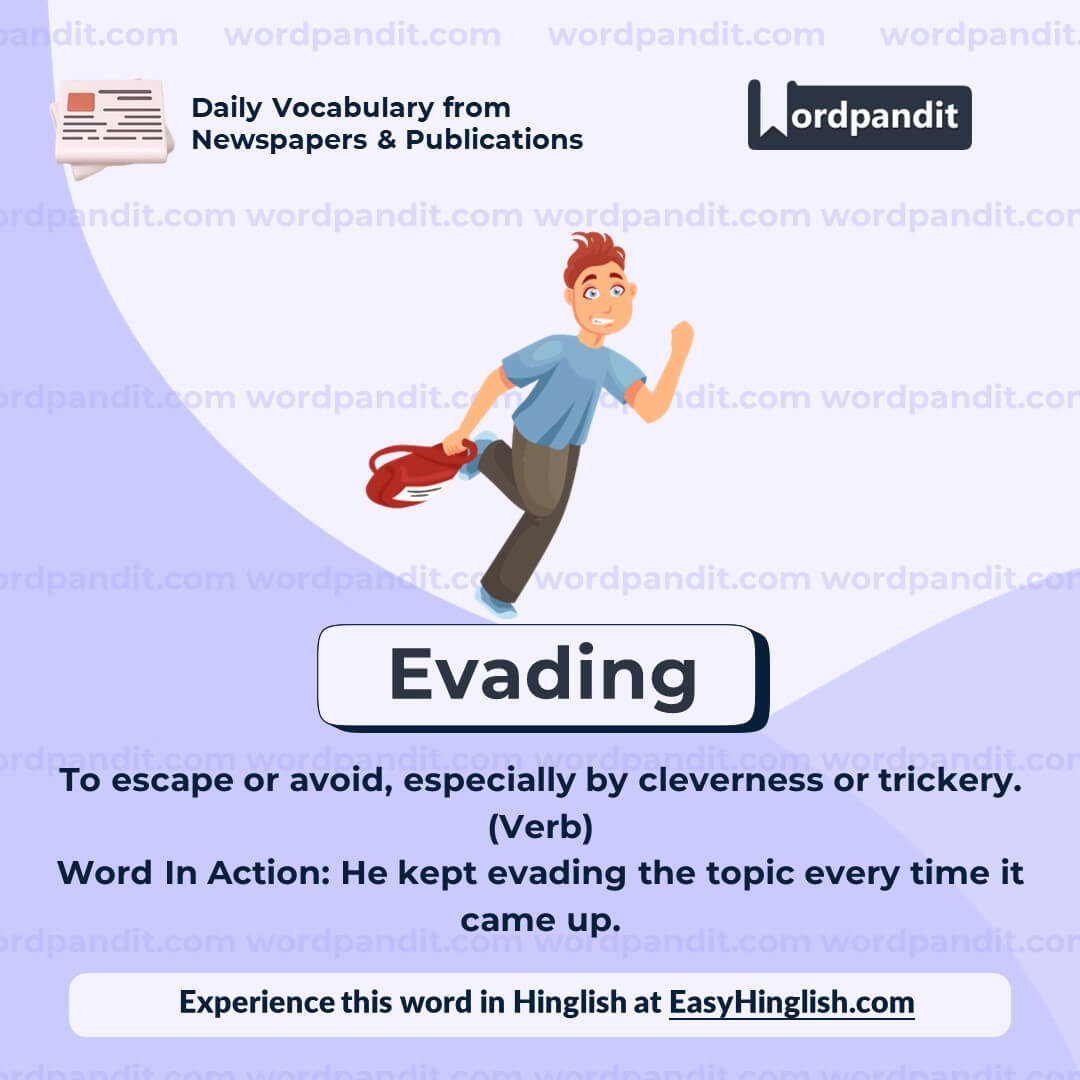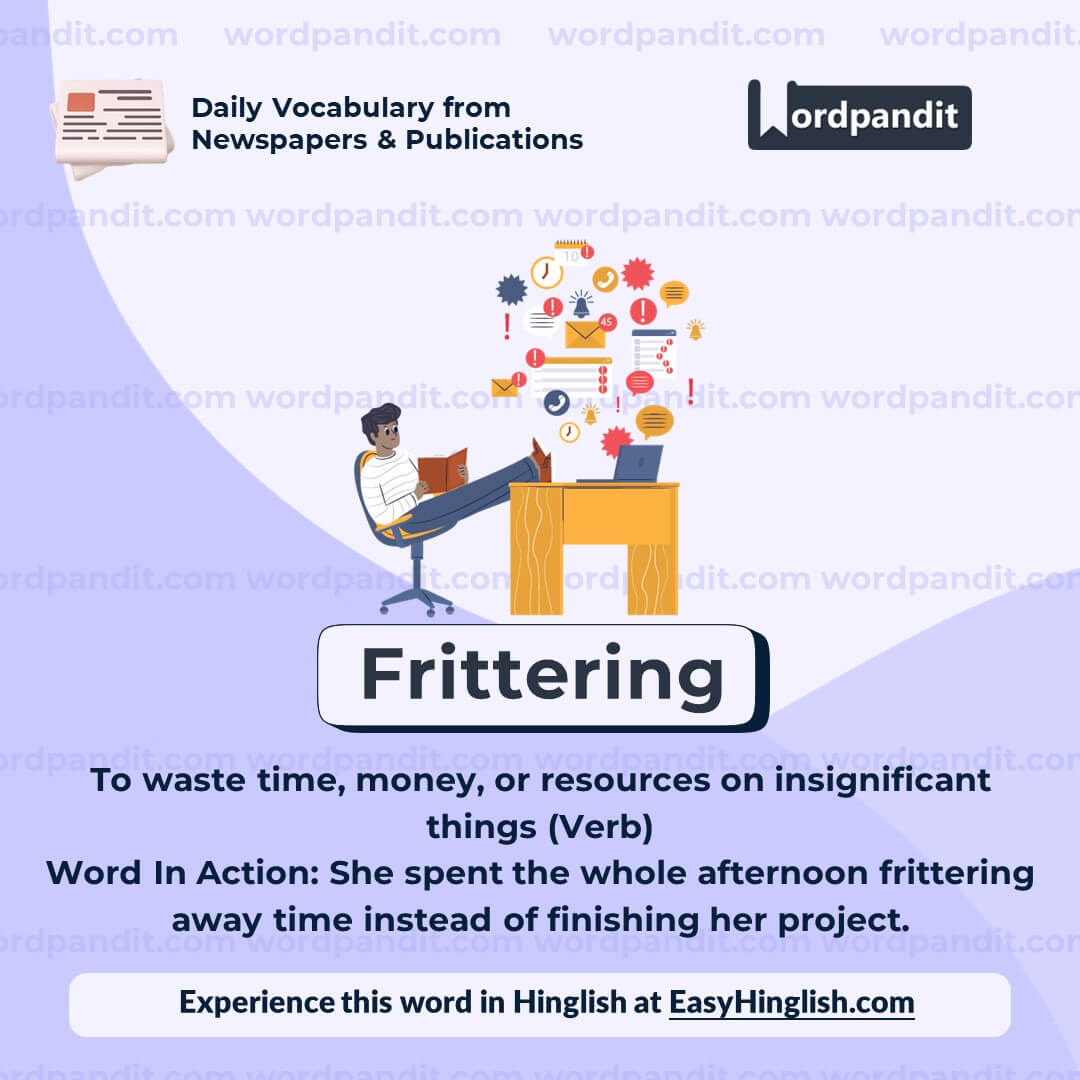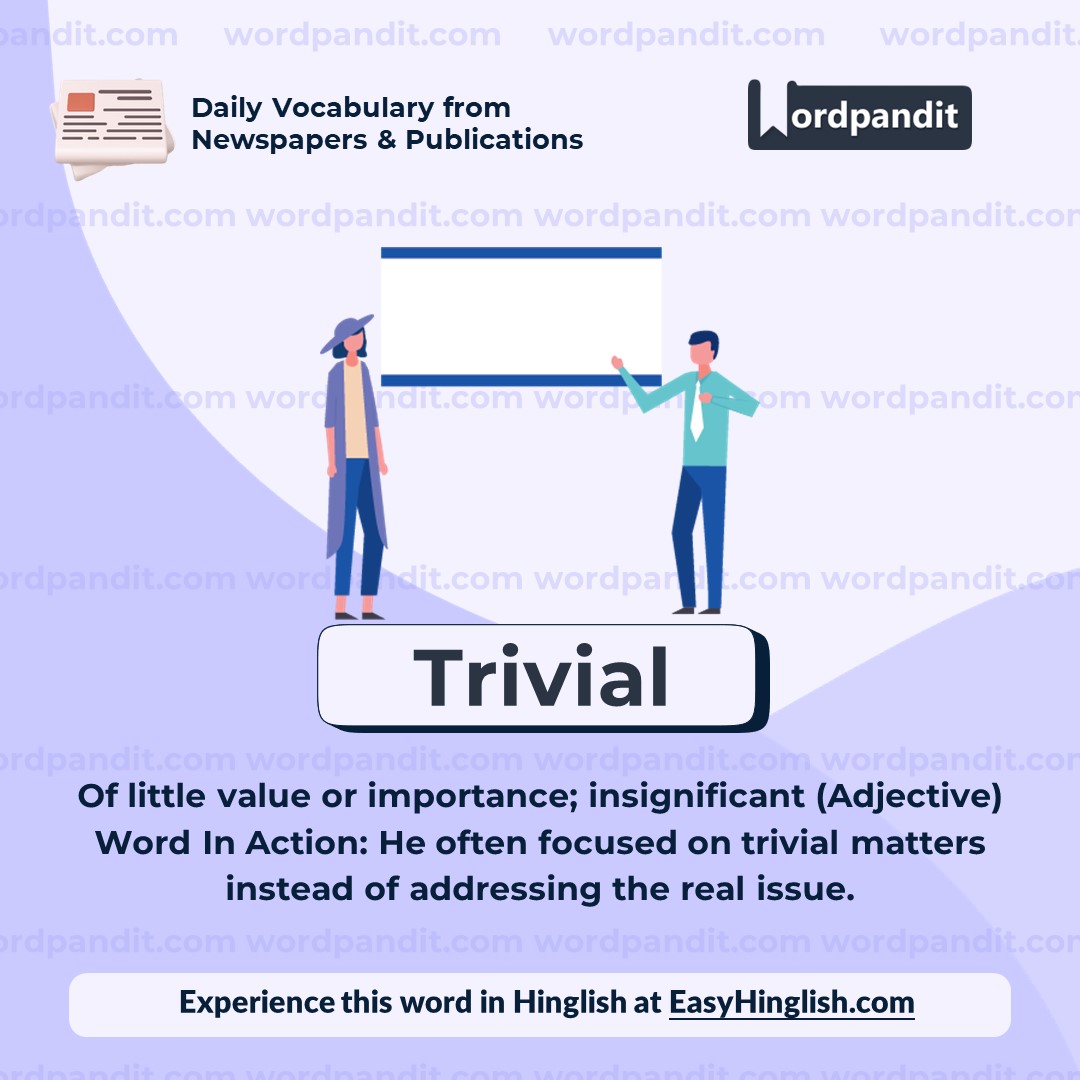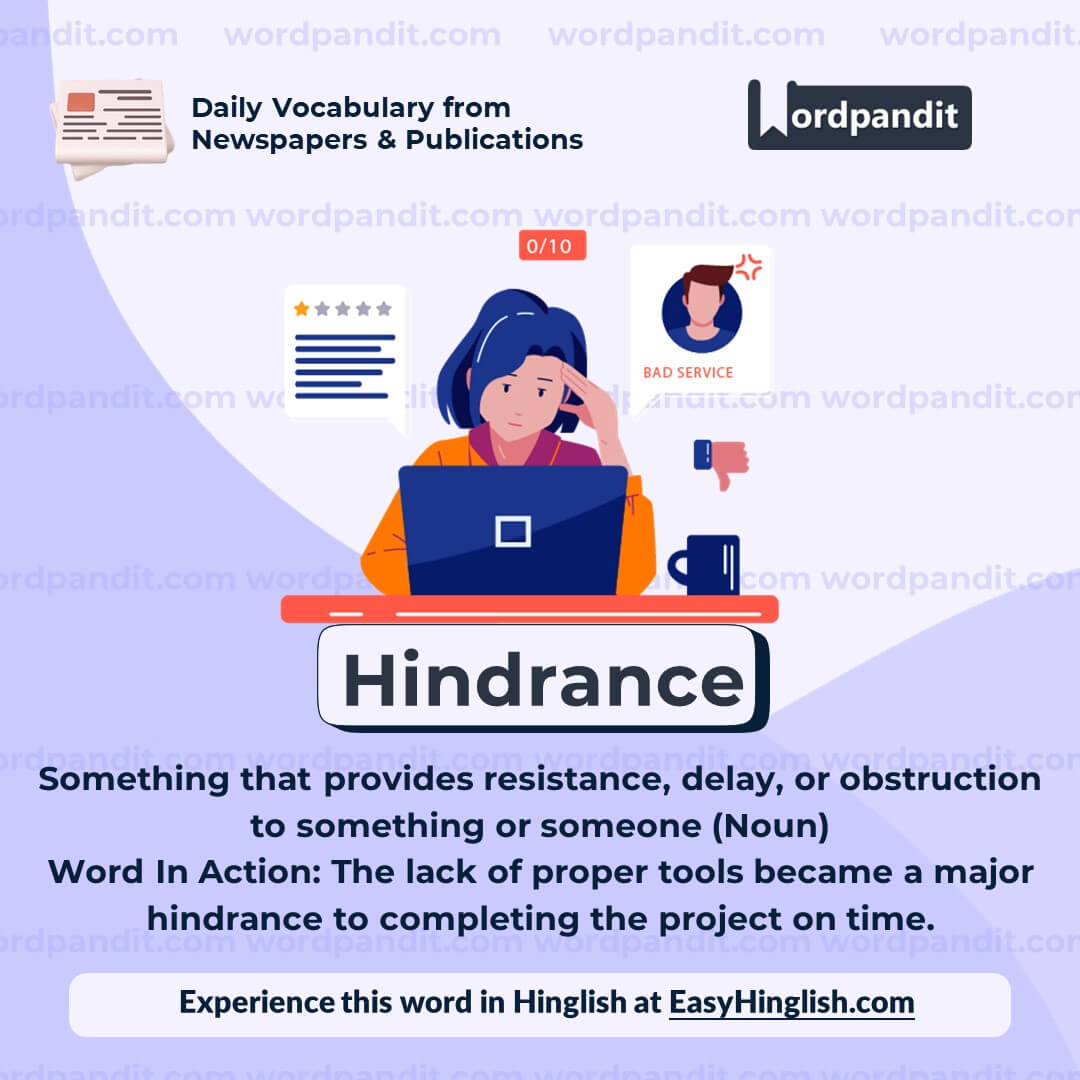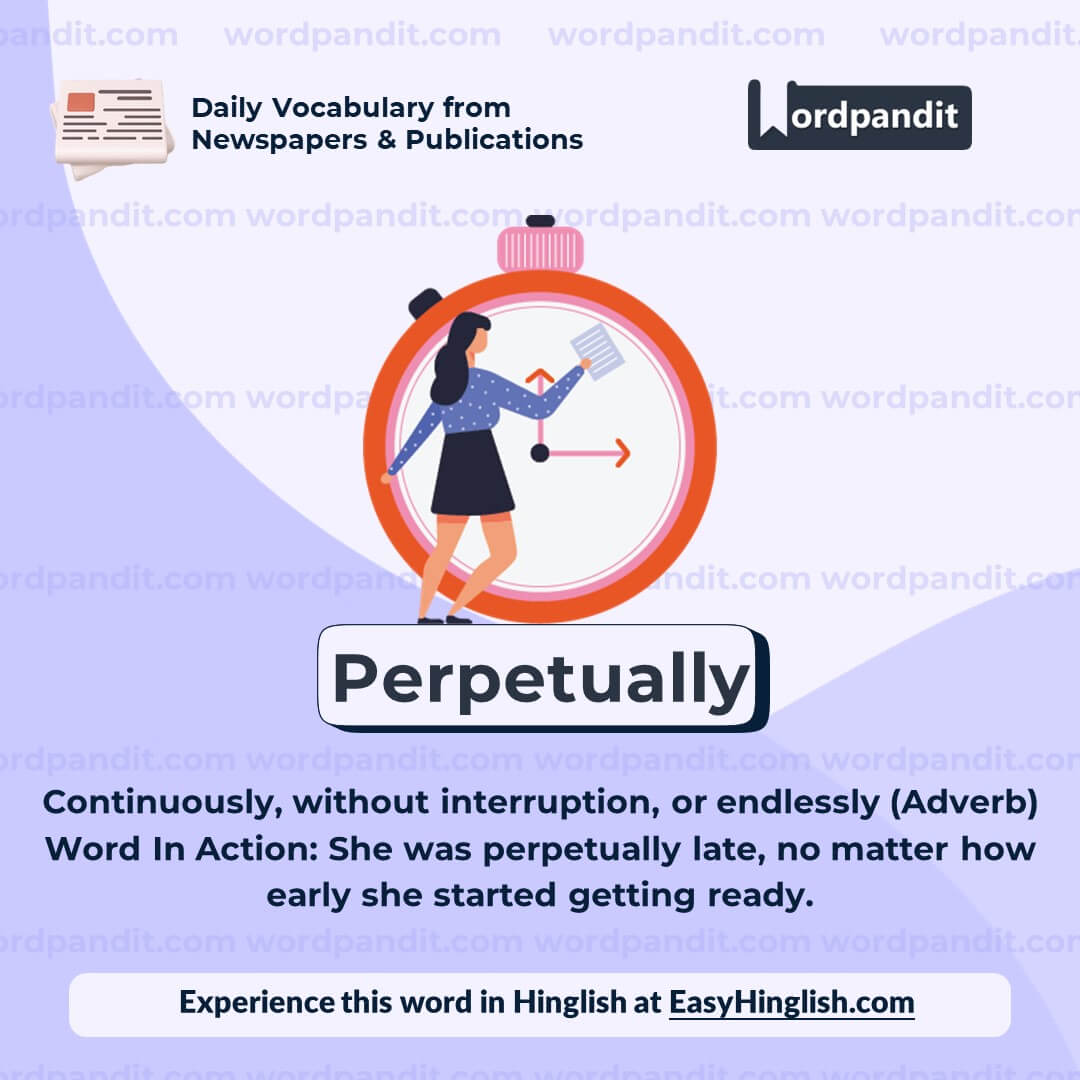Daily Vocabulary from International Newspapers and Publications
Expand Your Vocabulary with Wordpandit’s Global Vocabulary Hub
At Wordpandit, we are committed to helping you develop a truly global vocabulary by drawing from some of the most respected international publications. This section is designed to keep you ahead of the curve by introducing you to words that define global conversations and trends.
The Power of Global Sources
To help you think and communicate on a global scale, we curate vocabulary from renowned international sources, such as:
- The New York Times
- The Washington Post
- BBC
- The Guardian
- The Economist
- Scientific American
- Psychology Today
- And many more...
Stay Global, Stay Competitive
Our daily updates from international publications ensure you are consistently exposed to new words that reflect global news and developments, making sure your vocabulary is not only current but also globally relevant.
Enhance Your Global Perspective
Whether you’re preparing for international exams, aiming to excel in global business communication, or want to enhance your language skills for personal growth, Wordpandit offers the resources you need to thrive in a global context.
Effective Learning, Global Reach
Our learning methodology combines global examples, memory aids, and interactive activities, allowing you to internalize new words effectively and apply them in real-world scenarios.
Begin Your Global Vocabulary Journey Now!
Why Choose Wordpandit?
Practical Learning: Focus on words you'll actually encounter in real-world reading, enhancing your comprehension and communication skills.
Diverse Content: From current affairs to scientific breakthroughs, our varied sources expose you to vocabulary across multiple domains.
Effortless Integration: Make Wordpandit a part of your daily routine. Just a few minutes each day can significantly boost your lexicon over time.
Your Path to Vocabulary Mastery
- Visit our Daily Vocabulary section regularly
- Explore new words and their usage in context
- Practice incorporating these words into your own writing and speech
- Track your progress as your vocabulary expands
Start Your Journey Today
Embark on your vocabulary enhancement journey with Wordpandit. By consistently engaging with our daily posts, you'll build a robust vocabulary that serves you well in academic, professional, and personal contexts.
Remember, a word a day keeps linguistic limitations at bay. Make Wordpandit your daily companion in the quest for vocabulary excellence!
WORD-1: Evading
Context:
"My OCD is insidious and shape-shifting, evading conscious awareness or control. It seems to have a will of its own. Except that, of course, it is a part of me." - Aeon
Explanatory Paragraph:
The word "evading" refers to the act of avoiding or escaping something, often intentionally or skillfully. In the context provided, it suggests a deliberate avoidance of conscious recognition or control, emphasizing the elusive nature of OCD's influence on the individual.
Meaning: To escape or avoid, especially by cleverness or trickery. (Verb)
Pronunciation: ee-VAY-ding
Difficulty Level: ⭐⭐ Beginner to Intermediate
Etymology: From Latin "evadere," meaning "to escape or get away," derived from "e-" (out of) and "vadere" (to go).
Synonyms & Antonyms:
Synonyms: Avoiding, dodging, eluding, escaping, circumventing
Antonyms: Confronting, facing, meeting, encountering
Usage Examples:
- He kept evading the topic whenever someone brought up his recent failure.
- The thief managed to evade the police for several weeks before being caught.
- She skillfully evaded answering the tricky question during the interview.
- The football player evaded the defenders with a series of quick moves.
Cultural Reference:
"Evading capture is a common trope in action movies, where the hero outsmarts or outruns the villains in dramatic chase scenes." - Popular Culture
Think About It:
How might the tendency to evade difficult situations impact personal growth and problem-solving abilities?
Quick Activity:
Write a short paragraph describing a scenario where someone successfully evades a challenge. Focus on the methods they use to avoid the situation.
Memory Tip:
Think of "evading" as "escaping with effort," where the "e" reminds you of escape, and "vading" hints at navigating away from something.
Real-World Application:
"Evading" is commonly used in everyday language to describe avoiding responsibility, uncomfortable questions, or physical threats. For example, someone might evade paying taxes by exploiting legal loopholes.
WORD-2: Frittering
Context:
"You too might find yourself frittering away those precious hours on life admin and social media." - Aeon
Explanatory Paragraph:
The word "frittering" refers to wasting time, money, or resources on unimportant or trivial activities. In the context, it suggests that people often spend their valuable hours on mundane or inconsequential tasks like managing daily chores or browsing social media.
Meaning: To waste time, money, or resources on insignificant things. (Verb)
Pronunciation: FRIT-er-ing
Difficulty Level: ⭐⭐ Beginner to Intermediate
Etymology: From the Middle English word "fritour," meaning "to break into small pieces," and later adapted to imply wasting or squandering something in bits.
Synonyms & Antonyms:
Synonyms: Wasting, squandering, dissipating, trifling, dawdling
Antonyms: Saving, conserving, utilizing, investing
Usage Examples:
- She regretted frittering away her weekend scrolling through social media instead of working on her project.
- Instead of frittering his paycheck on luxuries, he decided to save for a house.
- The team was accused of frittering their time on unnecessary meetings instead of focusing on the project deadline.
- He realized he was frittering valuable resources on unnecessary expenses.
Cultural Reference:
"The idea of 'frittering' resonates with modern concerns about productivity and the excessive time spent on social media or trivial activities, a common topic in self-help and motivational books." - Lifestyle Literature
Think About It:
What are some strategies to identify and reduce frittering behaviors in your daily routine?
Quick Activity:
Write down three activities you often find yourself frittering time on. Next to each, brainstorm a productive alternative you could try instead.
Memory Tip:
Imagine a fritter (a small, fried snack) breaking apart into crumbs—each crumb represents a small, wasted piece of time or resource.
Real-World Application:
"Frittering" is commonly used to describe modern behaviors such as excessive time spent on entertainment, procrastination, or overthinking, all of which can detract from personal and professional growth.
WORD-3: Trivial
Context:
"Perhaps you’ve criticised a long-suffering partner about stupid, trivial things, to the point you worry they may actually pack up and leave." - Aeon
Explanatory Paragraph:
The word "trivial" refers to something that is of little value or importance. In the context, it implies focusing on insignificant matters to the detriment of more meaningful aspects of a relationship, potentially causing strain.
Meaning: Of little value or importance; insignificant. (Adjective)
Pronunciation: TRIV-ee-uhl
Difficulty Level: ⭐ Beginner
Etymology: From Latin "trivialis," meaning "commonplace or insignificant," derived from "trivium," a place where three roads meet, symbolizing something ordinary or unremarkable.
Synonyms & Antonyms:
Synonyms: Insignificant, unimportant, petty, minor, negligible
Antonyms: Important, significant, essential, critical
Usage Examples:
- She dismissed his concerns as trivial, but they turned out to be more important than she realized.
- Instead of addressing the major issue, they argued over trivial details.
- He regrets spending hours worrying about such trivial matters in his youth.
- Don’t let trivial distractions keep you from achieving your goals.
Cultural Reference:
"In Shakespeare’s plays, seemingly trivial events often serve as a prelude to significant turning points in the story, underscoring the complexity of human life." - Literary Analysis
Think About It:
How can distinguishing between trivial and significant matters improve relationships and decision-making?
Quick Activity:
List three situations where you focused on trivial matters instead of the bigger picture. Reflect on how you could approach these differently in the future.
Memory Tip:
Remember "trivial" by associating it with "trivia," which often includes facts that are fun but not deeply important.
Real-World Application:
The concept of "trivial" is often used in prioritization, helping individuals focus on what truly matters in professional and personal settings while avoiding unnecessary distractions.
WORD-4: Hindrance
Context:
"When we are given a shot – blowing it, or subtly hindering our chances. The puzzle is why so many of us perpetually find ourselves getting in our own way and disrupting our best-laid plans." - Aeon
Explanatory Paragraph:
The word "hindrance" refers to something or someone that makes it difficult to achieve a goal or progress. In the context, it highlights how people often unintentionally obstruct their own success, acting as a barrier to their ambitions or plans.
Meaning: Something that provides resistance, delay, or obstruction to something or someone. (Noun)
Pronunciation: HIN-drəns
Difficulty Level: ⭐⭐ Intermediate
Etymology: From Old English "hindrian," meaning "to harm or injure," later evolving into "hindrance" in Middle English, signifying an obstacle or impediment.
Synonyms & Antonyms:
Synonyms: Obstacle, impediment, barrier, restriction, limitation
Antonyms: Assistance, aid, support, encouragement
Usage Examples:
- The heavy rain was a major hindrance to completing the construction project on time.
- Procrastination is often a self-imposed hindrance to achieving success.
- The lack of funding proved to be a significant hindrance to their research.
- Instead of being a hindrance, criticism can serve as a motivator for growth.
Cultural Reference:
"The story of Sisyphus from Greek mythology is a symbolic representation of endless hindrance, as he is condemned to roll a boulder uphill, only to have it roll back down." - Mythological Reference
Think About It:
What personal habits or beliefs might act as a hindrance to your progress, and how can you overcome them?
Quick Activity:
Identify a recent situation where you felt hindered. Write down what caused the hindrance and one action you could take to remove it in the future.
Memory Tip:
Think of "hindrance" as something that "hinders," where the root word reminds you of blocking or slowing progress.
Real-World Application:
"Hindrance" is a common concept in problem-solving and personal development. Identifying and addressing hindrances can help streamline processes, improve productivity, and foster growth in both professional and personal settings.
WORD-5: Perpetually
Context:
"When we are given a shot – blowing it, or subtly hindering our chances. The puzzle is why so many of us perpetually find ourselves getting in our own way and disrupting our best-laid plans." - Aeon
Explanatory Paragraph:
The word "perpetually" refers to something that happens continuously, without stopping, or seemingly endlessly. In the context, it describes how people consistently engage in self-defeating behaviors, making it a recurring problem in their lives.
Meaning: Continuously, without interruption, or endlessly. (Adverb)
Pronunciation: per-PEH-chu-uhl-lee
Difficulty Level: ⭐⭐ Intermediate
Etymology: From Latin "perpetuus," meaning "continuous" or "uninterrupted," which evolved into "perpetual" in Middle English and later into "perpetually."
Synonyms & Antonyms:
Synonyms: Continuously, constantly, endlessly, ceaselessly
Antonyms: Occasionally, temporarily, intermittently, sporadically
Usage Examples:
- The clock in the hallway ticks perpetually, providing a soothing background sound.
- He felt perpetually stressed due to his demanding job and lack of rest.
- The village is perpetually covered in mist during the winter months.
- Her perpetually cheerful attitude made her a favorite among her peers.
Cultural Reference:
"The phrase 'perpetual motion' is often used in physics and popular culture to describe the concept of something moving endlessly without energy loss, though such a machine is scientifically impossible." - Science and Culture
Think About It:
What habits or mindsets might perpetually influence your daily life, either positively or negatively?
Quick Activity:
Write down three behaviors or patterns you find yourself perpetually engaging in. Reflect on whether they are beneficial or if changes are needed.
Memory Tip:
Link "perpetually" to "perpetual motion," imagining something that never stops moving, just as "perpetually" means without interruption.
Real-World Application:
"Perpetually" is a useful term to describe ongoing conditions or repeated actions in various contexts, such as workplace habits, environmental phenomena, or even personal relationships.


